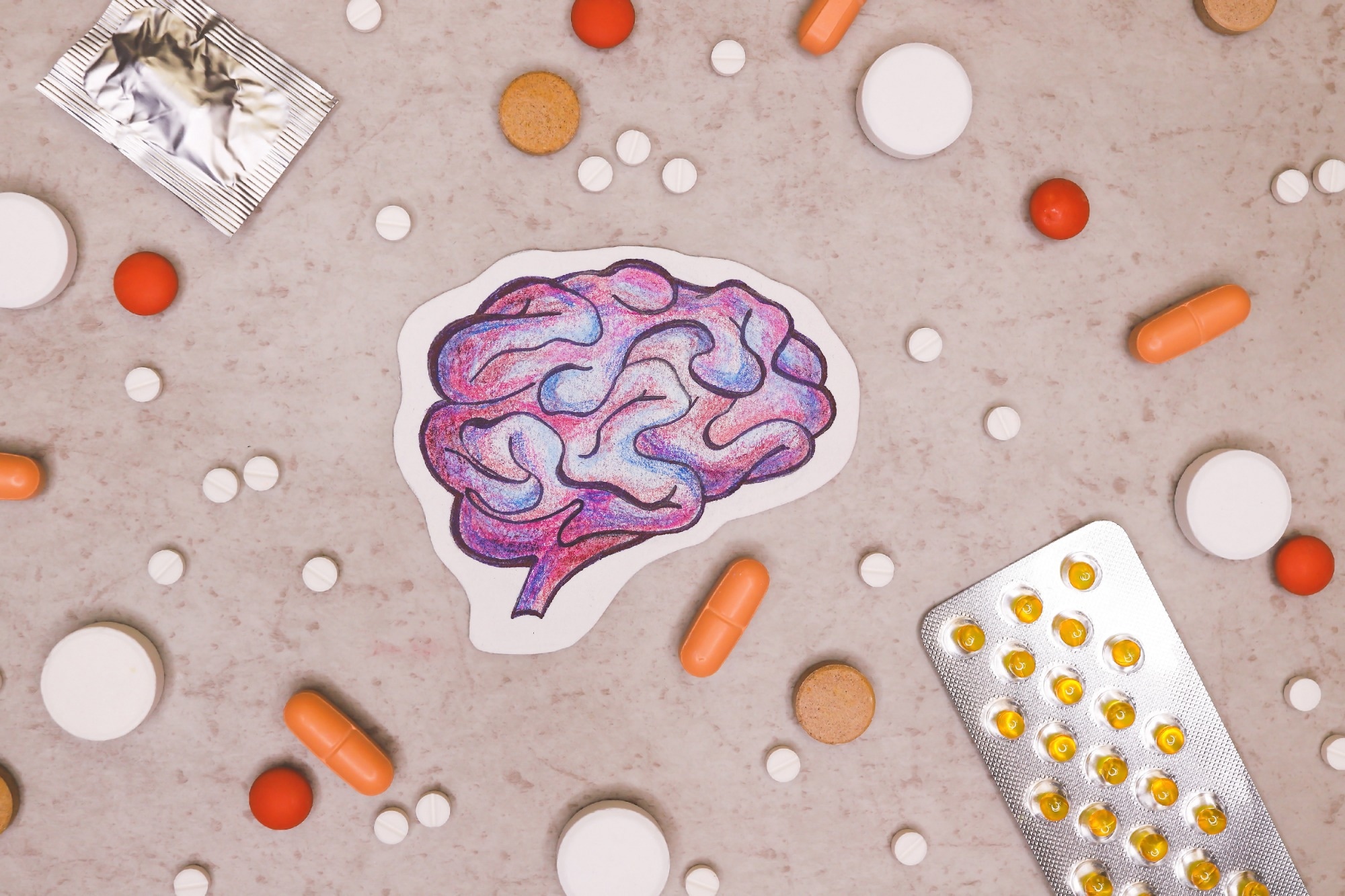
[ad_1]
Scientists have recognized neuromarkers of drug use-related affective and cognitive dysregulation that might assist healthcare pros decide particular person psychophysiological vulnerabilities to use personalised therapies.
The find out about has been printed within the Habit Neuroscience Magazine.
 Learn about: Towards neuromarkers for adapted smoking cessation therapies. Symbol Credit score: SOLOVEVAANASTASIIA/Shutterstock.com
Learn about: Towards neuromarkers for adapted smoking cessation therapies. Symbol Credit score: SOLOVEVAANASTASIIA/Shutterstock.com
Background
Compulsive drug searching for and loss of regulate over drug consumption are the feature options of substance use issues. Any dysregulation in neural networks associated with praise and govt regulate is the main explanation for substance use behaviors.
Whilst over the top incentive salience to drug use-related stimuli contributes to compulsive drug-seeking behaviors, loss of govt regulate suppresses the facility to regulate drug consumption.
Figuring out neuromarkers associated with incentive salience and govt regulate by the use of mind process evaluate has transform a big energetic house of study in addictive neuroscience.
On this find out about, scientists have mentioned methodological paradigms that as it should be assess how excessive incentive salience to drug-related stimuli and loss of govt regulate affect particular person susceptibility to creating substance use issues.
The scientists have proposed two necessary suggestions for figuring out suitable neuromarkers associated with substance use behaviors. The primary advice specializes in taking into consideration particular person reactivity to non-drug-related motivationally related stimuli whilst assessing particular person reactivity to drug-related stimuli.
The second one advice issues out measuring mind process whilst members make drug-related choices with quick penalties. Additionally, they have got discussed that validating possible neuromarkers towards drug-related behaviors is at all times necessary as an alternative of self-reported cravings, as they can’t be objectively assessed.
Vital observations
The scientists validated the medical relevance in their suggestions the usage of nicotine use dysfunction as a fashion. They followed those suggestions whilst designing the find out about method to spot possible neuromarkers of affective and cognitive dysregulation associated with drug use.
The findings indicated the medical importance of those suggestions in figuring out replicable neuromarkers of vulnerability to nicotine self-administration and smoking relapse all over a surrender strive.
The use of the amplitude of overdue certain possible (LPP), the scientists measured neurological responses to nicotine-related and non-drug-related stimuli (delightful photographs) in 180 people who smoke all over a quitting strive. LLP is a neuromarker of affective responses modulated through a given stimulus’s emotional depth.
They analyzed LPP responses and recognized two neuroaffective reactivity profiles, SCR+ and SCR-. The SCR+ profile indicated better LPP responses to nicotine-related stimuli than delightful photographs. Against this, the SCR- profile indicated better LPP responses to delightful photographs than nicotine-related stimuli.
People who smoke belonging to the SCR+ profile confirmed a considerably upper frequency of relapse than people who smoke belonging to the SCR- profile. This remark signifies that those neuroaffecting profiles can successfully decide particular person variations in vulnerability to stimuli-induced drug-seeking behaviors.
According to those findings, scientists discussed that healthcare pros may just use those neuromarkers to spot people extra vulnerable to repeated drug-addictive behaviors. This is able to additional assist them be offering personalised therapies to high-risk people.
The scientists arranged a medical trial involving nicotine substitute remedy or varenicline, a singular pharmacologic agent that reduces nicotine cravings and withdrawal signs and forestalls smoking-related rewards.
Initial findings of the trial published that varenicline is simpler for people who smoke with the SCR- profile than the ones with SCR+ profile.
In line with the second one advice, the scientists measured people who smoke’ mind actions (theta wave reaction patterns) the usage of electroencephalography all over the presentation of visible stimuli (drug-related and non-drug-related) and after the supply of exact rewards.
The scientists recognized two neurocognitive profiles in line with the theta wave patterns. People who smoke with upper theta responses all over nicotine-related decision-making had been extra liable to nicotine self-administration than people who smoke with the other neurocognitive profile.
Learn about importance
The find out about identifies explicit neuroaffective and neurocognitive biomarkers that can be used to broaden personalised therapies for quite a lot of substance use issues, together with tobacco use issues, alcohol use issues, and cocaine use issues.
The USA Meals and Drug Management (FDA) just lately licensed repetitive transcranial magnetic stimulation (rTMS) for smoking cessation.
The scientists consider neuromarkers recognized within the find out about can be utilized to personalize inhibitory and excitatory rTMS protocols designed to scale back reactivity to drug-related stimuli or building up cognitive regulate.
[ad_2]